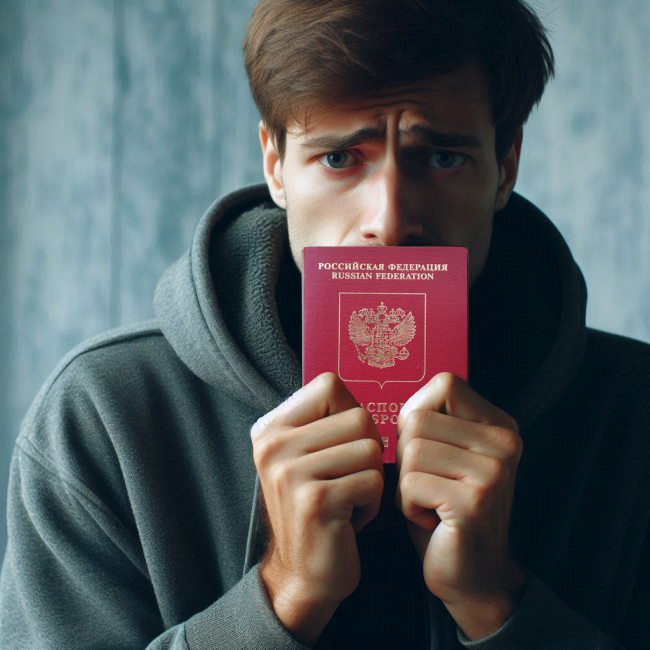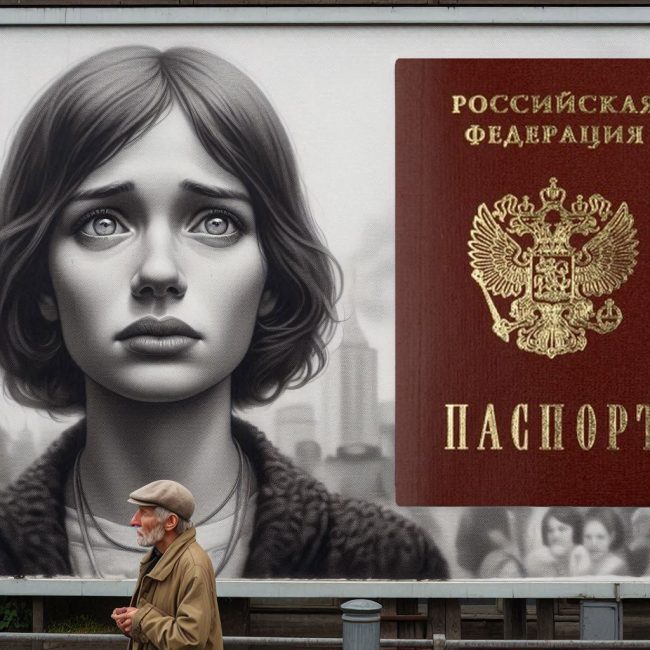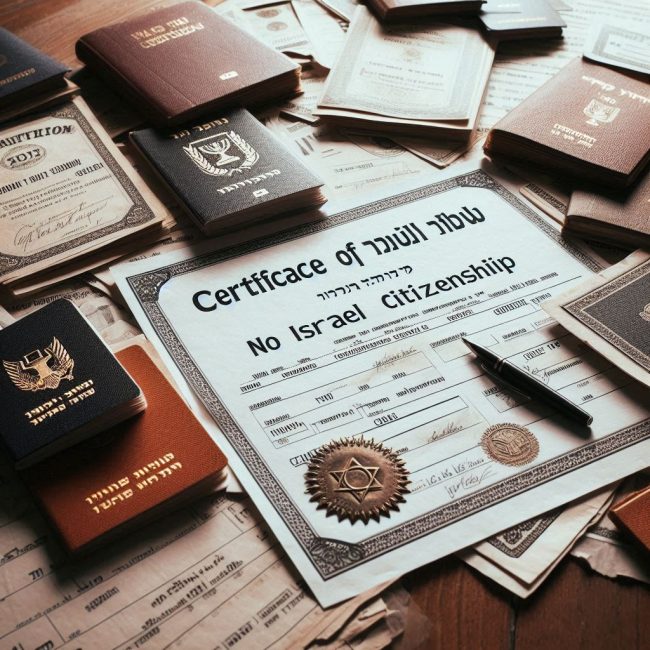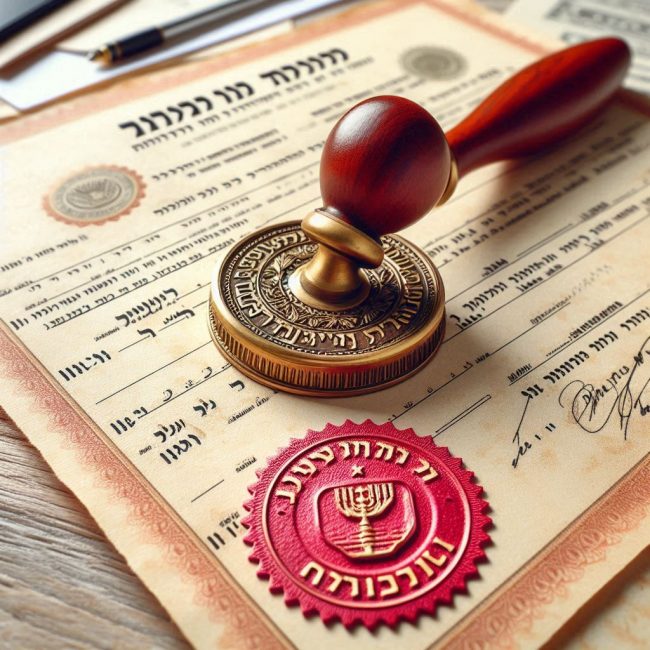Remote renunciation of Russian citizenship
In recent years Reznikov & Partners law firm has noticed a sharp increase in applications from Russians who have decided to withdraw from the citizenship of the Russian Federation. This trend intensified in 2022 following the imposition of sanctions against Russia, international isolation, deterioration of the economic situation and growing political tensions.
The exact number of Russians who have officially renounced citizenship varies. According to some sources, since 2022, the number of applications for renunciation of citizenship has multiplied, especially among those who have emigrated from Russia recently. According to the Russian Interior Ministry, up to 5-6 thousand Russians apply for renunciation of citizenship every year, but after the outbreak of hostilities in Ukraine, this number has risen to a record 11-13 thousand.
One example is Israel, where a significant number of Russians, having taken advantage of the law on repatriation and having received the coveted darqon, prefer to leave their previous citizenship. Let us not lie, today Russian citizenship becomes a kind of weight on the leg for its holders, which makes it difficult to immigrate to other countries, if such a need or desire arises.
But our legal team has a solution that can make this process easier for you, and we will try to explain why those to whom Russian citizenship today creates difficulties should hurry up.
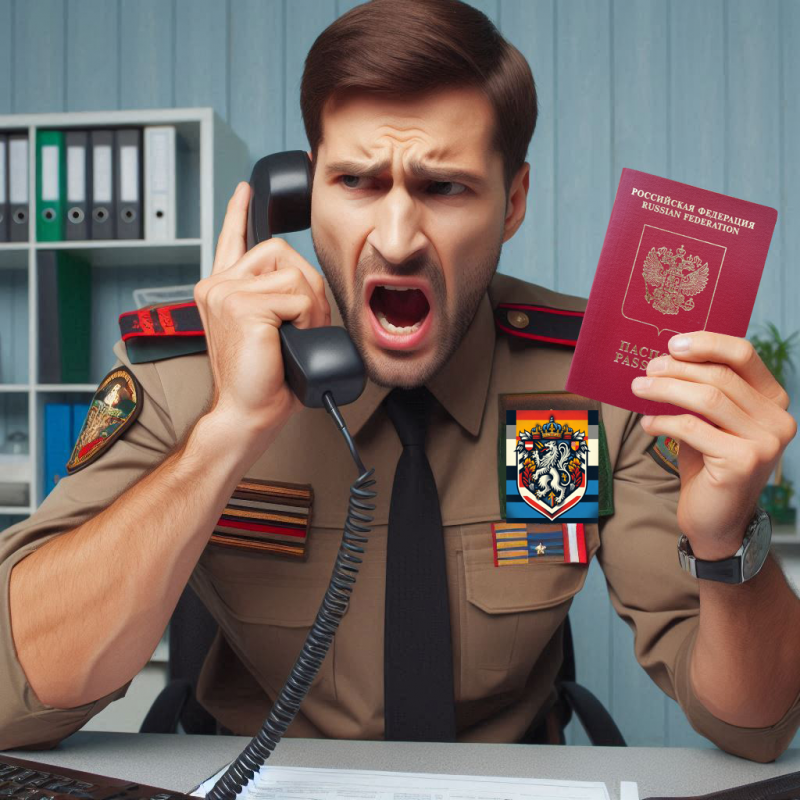
The once-obvious advantages of Russian citizenship
Not so long ago, any holder of Russian citizenship understood perfectly well that its existence has a number of undeniable advantages. These include access to the vast territory of the largest country in the world, the ability to conduct economic activity on its territory, free education and healthcare, the right to various benefits, payments, pensions, and the ability to obtain a loan for business development. Russian citizens can travel without visas in most CIS countries, which facilitates not only tourist trips, but also labor migration, business trips and family reunification.
According to the Henley Passport Index, the Russian Federation’s passport ranks 49th in the world ranking, allowing entry to 118 countries without a visa or obtaining one on arrival. This includes both countries where visa requirements for Russians have been completely canceled and those where a visa is issued at the border or at the airport. These countries include dozens of popular tourist and business destinations.
However, if you want to continue to enjoy all the opportunities and benefits of Russian citizenship, you will have to pay a high price. First, the state itself will require you to fulfill obligations in exchange for the benefits of citizenship. Secondly, you will face a number of problems and restrictions outside the country due to the sanctions regime. Times are changing and we will have to rethink all the pros and cons of having Russian citizenship.
Israel’s loyal stance towards Russians is an exception
After Russia began military operations in Ukraine, the State of Israel took a much more restrained stance towards Russia and its citizens than many other countries. At the moment, it can be noted that there are no harsh sanctions or restrictions for Russians. Israel has not tightened the visa regime and willingly continues to accept Russian tourists. Also, the presence of Russian citizenship does not affect the prospects of repatriation, provided that the existing Israeli laws and directives in this regard are observed.
The reasons lie in the deep historical ties between the two countries. A significant part of the Israeli population has Russian roots or comes from the post-Soviet space – there is a large Russian-speaking community in Israel, which affects domestic politics. There are also geopolitical interests, because Russia plays an important role in the Middle East, especially in contacts with Syria and Iran, which is important for Israel’s security. We can also draw attention to the strong economic ties between the two countries, constant cultural exchange, educational and scientific contacts.
Russia is perceived as a country that actively fights anti-Semitism, so Israel seeks to maintain a balance in international relations, especially given its difficult geopolitical position.
For these and many other reasons, we can say that this position is in a sense unique and is rather an exception if we compare Russia’s current relations with the countries of the so-called Western world.
Cons of Russian citizenship today
Today, having citizenship of the Russian Federation can create a number of problems for its holder, especially in the context of immigration, travel and residence permits, as well as doing business. This is due to political, economic and legal aspects, as well as the consequences of international sanctions imposed against Russia.
Let’s take a look at the main issues.
General discrimination due to international sanctions
After the conflict in Ukraine started in 2022, many countries imposed sanctions against Russia. This has led to restrictions on financial transactions, travel and other areas for Russian citizens. When traveling abroad, Russians cannot be sure what problems they will face in a particular country. Even if its laws do not contain certain restrictions for Russian citizens, this does not mean that they will not appear individually in the course of a particular case.
Service in the army
Having Russian citizenship means for a man to be registered for military service at the local branch of the military commission. During wartime, this can mean serious restrictions on movement or conscription.
Visa restrictions
Some countries have tightened the visa regime for Russian citizens or suspended the issuance of certain types of visas altogether.
Refusal to issue residence permits and permanent residence permits
Since 2022, many countries have refused to issue temporary and permanent residence permits to Russian citizens.
Employment difficulties
In some countries, employers may be reluctant to hire Russian citizens due to potential legal and reputational risks. It is worth remembering that there are many laws that prohibit persons with dual citizenship from holding senior positions in government, state agencies or other sensitive security-related areas.
Restrictions on the purchase of real estate
A number of countries have imposed restrictions on the purchase of real estate by Russian citizens.
Difficulties in opening bank accounts
Some international banks refuse to open accounts for Russian citizens or tighten their vetting procedures.
Spying and security concerns
Russian citizens may be subject to additional checks or denials due to concerns about espionage or subversive activities. This is especially true for NATO and other Western countries where security is a priority.
Public perception
Some countries may have a negative attitude towards Russian citizens due to the political situation, which affects their personal security as well as the ability of Russians to fully integrate into society.
Geography of problems. Difficulties for Russian citizens by country
Australia
– Imposes sanctions restricting financial transactions with Russia, which may prevent Russians from buying real estate in Australia
Belgium
– Ban on issuance of tourist visas
Bulgaria
– Suspended issuance of “golden visas” and residence permits to Russian citizens
United Kingdom
– Did not impose an outright ban on real estate purchases for all Russians, but significantly tightened requirements for real estate transactions, including the need to disclose sources of funds
– Sanctions affected many Russian businessmen and government-connected individuals, making it virtually impossible for them to purchase real estate in the country
Greece
– Prohibition of residence permits for investments
Iceland
– Banned tourist visas – Included Russian citizens in the list of those who cannot buy real estate in the country, except with government permission
Latvia
– Ban on entry on Schengen “C” visas from outside Schengen – Ban on issuance of tourist and work visas
Lithuania
– Prohibition of entry on Schengen “C” visas from the outside of Schengen
Netherlands
– Ban on issuance of “C” visas
Norway
– Ban on tourist visas – Ban on Russians entering Norway for tourist purposes and for other reasons not of primary importance
Ascension Island
– Total Denial of Entry
Spain
– Froze “golden visa” programs for Russian citizens, making it virtually impossible to obtain a residence permit through real estate investments.
Poland
– Ban on entry on Schengen “C” visas from the outside of Schengen, including a ban on transit
– Ban on issuing tourist visas – Strict restrictions on the purchase of real estate by Russian citizens, especially in strategic regions of the country. Although there is no official total ban, it has become much more difficult for Russians to purchase real estate due to complicated procedures and restrictions
Slovakia
– Ban on issuance of tourist visas
Ukraine
– Prohibition of entry, residence permit, citizenship and notary actions
Finland
– Ban on entry on Schengen “C” visas from outside Schengen – Ban on buying real estate
Czech Republic
– Ban on issuance of tourist visas and residence permits
Estonia
– Ban on entry on Schengen “C” visas from outside Schengen – Ban on issuing visas of any type – Ban on buying real estate
Canada
– Two-year ban on the purchase of real estate by foreigners, including Russian citizens
Montenegro
– Suspended the issuance of residence permits through investment for Russian citizens, which also limited the ability to purchase real estate to obtain a residence permit
New Zealand
– Introduced sanctions against Russian individuals and entities that restrict their ability to invest in real estate and participate in asset transactions in the country
Cyprus
– Suspended the “golden passport” program for Russians, making it difficult to buy real estate for citizenship. While the purchase of real estate for personal use is not prohibited, the sanctions restrict financial transactions for Russians
It is important to note that this list is not exhaustive and is only the tip of the iceberg, the situation will only get worse over time. It is also worth emphasizing that many countries often go beyond the restrictions listed above and may apply even stricter criteria for evaluating various applications and resolving issues in the case of citizens of the Russian Federation.
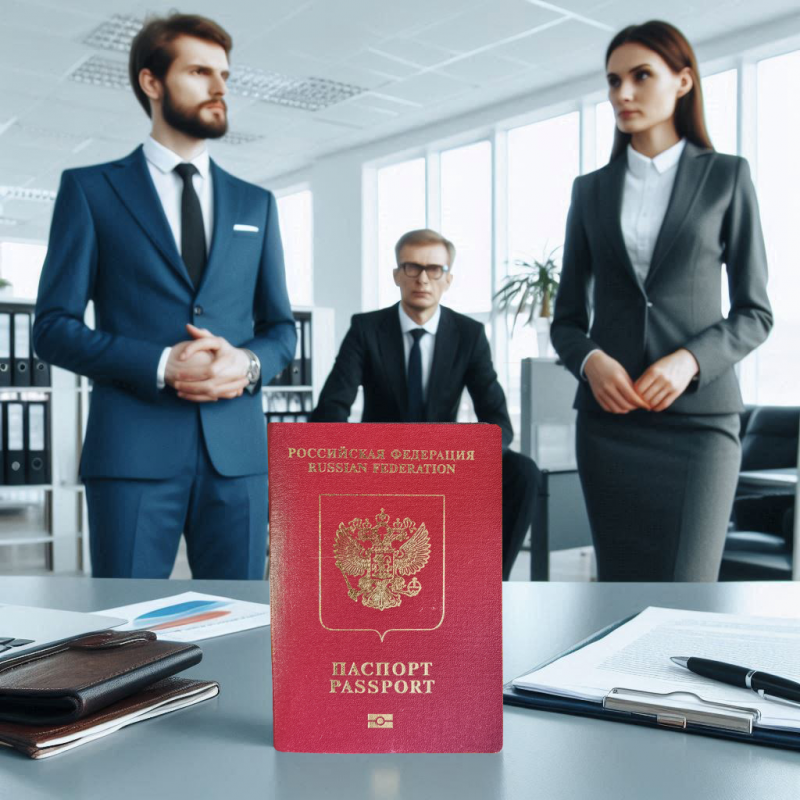
Why you should hurry up with your renunciation of Russian citizenship
The topic of mass abandonment of passports by Russian citizens who have left the country has recently attracted close government attention. If in 2022 many of those who left Russia could soon return, and the authorities took a wait-and-see attitude to assess the trend, today it has become clear that the vast majority are non-returnees. And this is evidenced by the sharp increase in applications to renounce Russian citizenship.
No one gives clear statistics on the number of those who left, but indirect data (the number of issued passports, data from neighboring countries (the difference between arrivals and departures) allow us to draw conclusions not even about hundreds of thousands. For example, journalists of “The Bell”, having studied statistics from 70 countries, came to the conclusion that after February 2024, no less than 666 thousand Russians went abroad and did not return. And according to the Center for Macroeconomic Analysis of “Alfa Bank” the number of Russian citizens who left is at least 1.1 million people. Other sources report about 1.5 million people. Although accurate records are kept of Russian border crossings, the authorities have never yet provided reliable statistics.
Russia plans to prevent its citizens from traveling abroad
According to experts, due to the dire demographic situation and shortage of personnel on the frontline, Russia is about to apply a wide range of legal and not-so-legal methods to restrict its citizens from traveling abroad. These measures range from legal restrictions related to mobilization, debts or civil service to semi-legal actions such as blocking passports or pressure at the border. Given the current political situation, these measures may become more severe, especially if the military situation or internal crises continue to deteriorate.
Thus, among the new legislative initiatives of the government is the introduction of additional exit restrictions for those who have gone abroad and criticize the state. In particular, it is a question of creating “black lists” of such citizens who may be denied the opportunity to leave the country.
It is obvious that there will be more and more cases when men of conscription age will not be released from the country, despite the absence of an official ban, even if legally citizens do not fall under any ban. There will be thousands of such cases from 2022. Travel abroad is blocked not by a direct ban, but on the basis of unofficial lists of military committees or other authorities, without a clear legal basis.
Restrictions on the issuance of a foreign passport. If a Russian citizen is subject to mobilization or under investigation, his/her right to obtain a foreign passport may be restricted. This is used as a tool to prevent travel abroad. Some Russians have faced refusal to renew their passports without an official explanation, which is a hidden mechanism to control the mobility of citizens.
“Recommendations” for company employees. In some public or large private companies, employees may be “advised” not to travel abroad for a certain period of time, especially during mobilizations or political instability. This may be formalized as an internal instruction or a verbal directive. If such recommendations are not followed, the employee may be threatened with dismissal or other sanctions.
Psychological pressure and intimidation. In some cases, representatives of security forces or authorities may exert psychological pressure on citizens who are trying to leave the country. This may include threats of dismissal, “repercussions” for the family or future employment. The use of propaganda and intimidation also plays a role in limiting the outflow of citizens, especially among those who fear negative consequences for traveling abroad.
Russian consulates abroad will stop accepting applications for renunciation of citizenship
Last year, the Russian Embassy in Estonia announced that it would stop accepting applications from Russians for renunciation of citizenship. The Foreign Ministry explained it by temporary technical difficulties amid news about famous ex-Russian citizens who gave up their Russian passports last year. The situation lasted for several months.
The news that the Russian embassy in Estonia stopped accepting applications from Russians to renounce their citizenship received a rather wide and atypical resonance for this kind of news. As it was stated on the website of the Russian Foreign Ministry, the measure was of a temporary nature, because the reason for such a suspension: “hostile actions of the Estonian authorities, deliberately obstructing the functioning of the Russian diplomatic mission”. Because of this, the consular section of the embassy could only perform urgent tasks, and the reception of applications from persons who want to renounce their citizenship was not one of them.
It is not hard to guess that the “hostile action” language of the country in which the consulate is located can be applied any time a decision is made to limit the acceptance of applications for renunciation of citizenship.
Western countries will revoke their citizenship if they have Russian citizenship
Against the backdrop of war and sanctions, some political forces in a number of Western countries began to seriously discuss the possibility of toughening measures against citizens with dual citizenship, including those with Russian citizenship, which caused a huge resonance among Russians. Despite the fact that in practice the issue of deprivation of citizenship is complex and regulated by the legal norms of each particular country, the governments of individual states have no obstacles to launch this process. What reasons they can find, we will describe below.
In most Western countries, citizenship can only be revoked under certain circumstances.
Among them:
– Threat to national security. If a national is involved in terrorism, espionage or other activities that threaten the security of the state, he or she may be stripped of citizenship.
– False information when obtaining citizenship. If citizenship was obtained through fraud or false information, it can be revoked.
– Voluntary renunciation of previous citizenship. Some countries require citizens to renounce a second citizenship if they obtain citizenship of another country. For example, Germany requires renunciation of a second citizenship upon naturalization. Poland also requires renunciation of previous citizenship when citizenship is granted through the president.
– Participation in hostilities against the country. If there is confirmed information that the citizen is somehow involved in the conduct of hostilities against his/her country.
Although there are currently no official legal norms that allow citizenship to be revoked for having Russian citizenship, things can change suddenly, depending on the political situation.
We should also not forget that in case of an aggravation of the armed conflict in which Russia is involved, total mobilization can be announced at any moment.
To renounce Russian citizenship on your own and not go crazy
Relinquishing Russian citizenship for a person abroad usually turns out to be an incredibly complicated and exhausting procedure. The process is accompanied by numerous bureaucratic delays, long waiting times and the need to interact with various state bodies, both in Russia and abroad.
Documents
Collecting and processing all the necessary documents causes a lot of problems, especially if a person does not have the opportunity to interact directly with Russian state structures. All certificates must be obtained in Russia, which is extremely difficult for those who have been abroad for a long time or cannot appear there in person for fear of being banned from traveling for a variety of reasons, such as debts or military duty.
Making an appointment at a Russian consulate
If you have managed to collect the documents, an even bigger problem will be the unthinkably long process of making an appointment at a Russian consulate. After the outbreak of the military conflict in 2022 and the imposition of sanctions, many Russian consulates abroad faced a huge workload. The number of appeals increased dramatically, and the number of consular staff was reduced.
This led to the following:
– It is almost impossible to get through to the consulate and get advice. – It is even more difficult to make an appointment at a Russian consulate. The waiting time can be several months. You will have to beat the threshold of the institution at least 4-5 times. – The queue for the submission of documents can stretch for six months or more. – There are constant failures in the work of electronic record systems, which complicates the processing process.
Unthinkable timelines for checks at the Ministry of Internal Affairs
Another obstacle is delays due to procrastination at the Ministry of Internal Affairs. An application for renunciation of Russian citizenship must be checked by the Russian Ministry of Internal Affairs, which can take a long time. The main problems in interacting with the Ministry of Internal Affairs include:
– Unrealistic timeframes for processing applications – officially the procedure can take up to 1 year, but in practice the timeframes can be even longer. – Problems with identity verification: the Ministry of Internal Affairs may request additional data to confirm that the citizen is not under investigation or has no debts. – Obtaining such certificates may require additional time, especially if they are to be issued by authorities in Russia. – Frequent rejection of applications if a person has not fulfilled any obligations to the state, for example, has tax arrears, has not completed legal proceedings or is in the reserve for mobilization, has not checked out of his housing in time, etc. There will always be a reason.
Military registration and military registration offices
Another problem is military registration. For males of draft age (18-60), renunciation of citizenship can be complicated by mobilization requirements. Specifically:
– If a person is in the reserves or is of draft age, his/her application for refusal may be blocked and he/she will have to interact with military enlistment offices.
– Even if the person is abroad, Russian authorities may require his/her return to settle issues with military service. At the same time, renunciation of citizenship without performing military duty in Russia is impossible.
Return of Russian documents
In the process of renouncing citizenship, a person will need to surrender Russian documents, including a foreign passport. This can create several problems:
– Refusal to obtain a new passport
– if a passport is lost or expires, a citizen may be refused renewal if he or she is in the process of renouncing citizenship. This deprives the possibility of free movement abroad. – Problems with valid Russian documents
– if the status of documents changes or they are canceled, a person may find themselves in a situation where they do not have valid documents to legally stay abroad.
Long wait for a decision
Even after all documents have been submitted, the application process can take from several months to several years. Russian authorities are usually slow in processing applications for renunciation of citizenship, and this can cause serious delays. Reasons for delays:
– Staff shortages at consulates and the Ministry of Internal Affairs.
– Internal checks and bureaucratic slowness.
– Periodic tightening of rules and additional checks in the context of geopolitical tensions.
Political reasons
In some cases, the process of renouncing citizenship may be delayed or complicated for political reasons. Russian authorities may deliberately delay the processing of applications for political or bureaucratic reasons, especially for citizens who have been involved in political activities, criticized the government, or left for countries that Russia considers hostile.
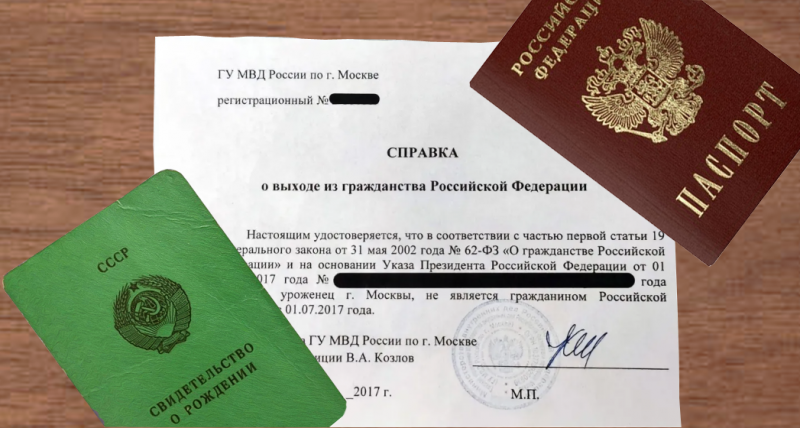
Certificate of renunciation of citizenship of the Russian Federation
Get a certificate remotely through an international lawyer
Relinquishing Russian citizenship after obtaining Israeli citizenship can be a meaningful step for those who want to avoid double taxation, mobilization in Russia, bureaucratic delays, financial problems, restrictions on movement around the world and other political risks associated with Russian citizenship.
All you need is a certificate of renunciation of Russian citizenship in Israel!
A certificate of renunciation of Russian citizenship is a key document confirming the termination of Russian citizenship. It may be needed in various situations abroad – from obtaining new citizenship and working in the civil service to solving financial and property issues. It helps to avoid dual citizenship, tax and legal problems, and provides simplified interaction with local authorities and financial institutions.
– You can get it remotely through an international lawyer! – No need to personally sign up at the Consulate of the Russian Federation in your country! – It is not necessary to personally come to Russia and deal with and beat the thresholds of ministries and departments to collect the necessary package of documents!
Thus, the service: Remote Exit from Russian Citizenship will help you solve a lot of problems we mentioned above.
An international attorney will deliver your certificate anywhere in the world within a few weeks.
This will be an apostilled document that will be recognized in any country in the world*
_______________
* with the exception of Iran
We also invite you to read the material on the topic:
📌 Certificate of renunciation of Russian citizenship in Israel
